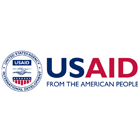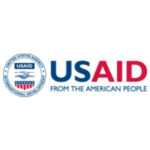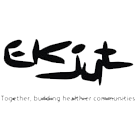Inequality perpetuates poverty, and gender inequality is one of the most pervasive forms. Since our founding, Digital Green has actively promoted strategies that build women’s agency and promote the effective partnership of women and men to improve their family’s incomes and overall wellbeing. Gender responsive programming is key to the success of our projects. Women contribute up to 80 percent in food production by way of rearing poultry, livestock as well as growing crops.













Maternal and child undernutrition is one of the world’s most serious health, economic and human development challenges. Child undernutrition causes an estimated 3.1 million child deaths annually, and one-third of women in South Asia are underweight. Maternal and child undernutrition have important consequences for pregnancy outcomes, children’s survival, child physical and cognitive development, and the incidence of acute and chronic diseases. The impacts of undernutrition also extend beyond health outcomes, with consequences for educational attainment, economic progress, and human wellbeing. There is an increasing scientific consensus that interventions to address immediate determinants of undernutrition (‘nutrition-specific’ interventions) are necessary but not sufficient: acceleration of progress in maternal and child nutrition will entail coupling these interventions with nutrition-sensitive programs that tackle the underlying causes of undernutrition. ‘Making agriculture work for nutrition’ is now a top policy priority but the evidence-base is weak, largely due to poorly designed studies that are unable to discern causal effects.
Upscaling Participatory Action and Videos for Agriculture and Nutrition (UPAVAN) is a four-arm, cluster randomized controlled trial (RCT) based in Keonjhar district, Odisha, India, aimed at assessing the nutrition and agricultural impact and cost-effectiveness of three types of interventions (compared with a control arm). The RCT has been designed and managed by LSHTM in partnership with Digital Green who takes care of the implementation side of it in partnership with implementing partners. The three intervention arms are built on a set of pilot and feasibility studies (and a current intervention strengthening grant). The control arm (Arm 4) receives standard agriculture, health and nutrition-related services provided by the government or other organizations in Odisha, India.
Using a web-based learning and assessment platform, we train farmers as community knowledge workers (CKWs) primarily women, enabling them to educate farmers on practices to boost their productivity and nutrition behaviors. This education takes place through videos produced by farmers and for farmers; the CKWs disseminate the videos to other farmers would stand to benefit from this knowledge. Our training courseware, made possible by funding from Oracle, includes both offline and online components, using a combination of practical instructional videos and a mobile training application that guides trainers and assesses the mastery level of CKWs.
Digital Green worked with SPRING and VARRAT to implement a 12-month pilot across 30 villages in Odisha, which sought to develop local NGO capacity in MIYCN and to produce and disseminate 10 videos featuring MIYCN practices. The International Food Policy Research Institute (IFPRI) conducted a study to examine the feasibility of using the new Digital Green/SPRING approach to promote adoption of MIYCN behaviors during the course of the pilot. The study found that the approach was highly promising, as the videos proved to be one of the key sources of nutrition-related information within the communities, and demand for them was high among the project’s target audience (women in self-help groups) and frontline workers. The full report can be access here . The results of the pilot and feasibility study led to a subsequent project in Odisha to advance IFPRI’s recommendations, and later inspired additional SPRING / Digital Green collaborations in additional geographies. The full report of the pilot and feasibility study can be found here.
